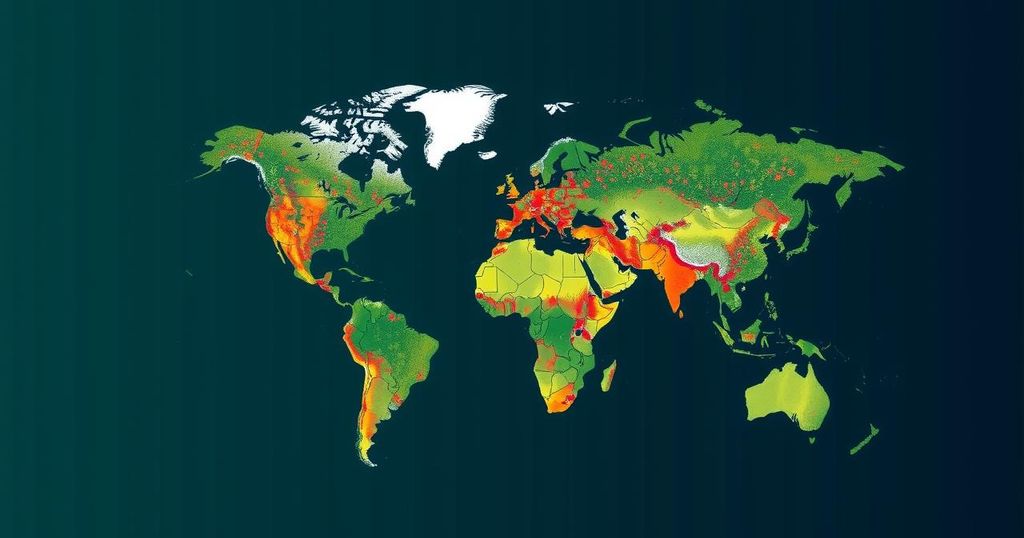Climate change
AFP, AFRICA, ALLIANCE OF SMALL ISLAND STATES, ASIA, AZERBAIJAN, BAKU, CEDRIC SCHUSTER, CLIMATE CHANGE, CLIMATE JUSTICE, EUROPE, FRANCE, INTERNATIONAL COOPERATION, JI, JIWOH ABDULAI, MU, MUKHTAR BABAYEV, NIGERIA, NKIRUKA MADUEKWE, PARIS, PARIS AGREEMENT, SIERRA LEONE, SOUTH, SUSTAINABLE DEVELOPMENT GOALS, TA, UN, XINHUA, XINHUA NEWS AGENCY
Fatima Khan
0 Comments
COP29 Summit: $300 Billion Climate Financing Deal Criticized for Insufficiency
At COP29, nations agreed on a $300 billion annual climate finance target, which has been criticized by developing countries as insufficient. Concerns were raised regarding the lack of accountability mechanisms for wealthier nations, which may allow them to avoid commitments. Experts argue that this failure to adequately support vulnerable nations reflects broader inequities in climate responsibility and negotiation dynamics.
At the COP29 summit in Baku, a new global climate finance target was established, requiring advanced nations to dedicate $300 billion annually to assist developing countries grappling with climate-related challenges. This agreement has drawn significant criticism from those it aims to support, who deem it “woefully insufficient.” Experts express concern about the lack of an enforceable accountability mechanism for wealthier nations, potentially allowing them to evade their responsibilities without consequences. With a broader aim of reaching $1.3 trillion annually by 2035, the negotiation process was fraught with tension, exhibiting clear divides between developed and developing nations. The failure to adequately address the needs of poorer nations reflects a concerning imbalance in global climate responsibilities.
The recent COP29 summit served as a platform for global leaders to negotiate critical measures addressing climate change impacts, particularly on vulnerable countries. The substantial financial commitments made, while commendable, have faced criticism for their inadequacy in light of the profound challenges faced by developing nations. The absence of a binding accountability mechanism has raised alarms among experts and delegates, highlighting the ongoing struggle between developed and developing countries in achieving equitable climate action frameworks. This background sets the stage for analyzing the implications of the recent agreements on future climate negotiations.
The commitments established at COP29 reflect a significant moment in global climate negotiations; however, urgent critiques emphasize the need for greater accountability and sincerity from developed nations. As discussions progress, it remains essential for the international community to address historical inequities and ensure that climate financing adequately supports those most impacted by climate change. The disparity in commitment levels indicates a pressing need for continuous dialogue and enhanced partnerships to fulfill ethical responsibilities towards climate justice.
Original Source: www.globaltimes.cn




Post Comment